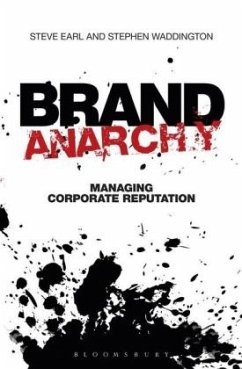As the media landscape looks increasingly diverse and anarchic, individuals, organisations and governments should not waste time wondering whether they have lost control of their reputations. The simple fact is that they have never had control. The question is what they can do about it now, and what they need to consider for the future. The fragmentation of media and the rise of social media has brought brand and personal reputational risk into sharp focus like never before. Disaffected shareholders, customers and staff are voicing their opinions to a global internet audience. In a brand context, it's reputation anarchy. In Brand Anarchy, Steve Earl and Stephen Waddington draw on insight from opinion-makers and shapers such as Greg Dyke, Alastair Campbell, Mark Thompson and Seth Godin to explore how reputations can be better managed and the new challenges that the future of media may bring. This plain-speaking, shrewd book pulls no punches. It's a survival guide for anyone concerned what others think or say about them.
The authors are two experienced journalists turned PR practitioners who have worked on reputation management with major organisations such as IBM and Tesco and they have interesting observatiosn to make about the challenges facing traditional media from the rapid growth of digital. There is good analysis of the different models newspapers are using to adapt to the digital age. Earl and Waddington then look at how companies manage their reputations in the digital age. Organisations are still typically broadcasting their content to their audience rather than engaging. Shifting from traditional forms of corporate communication to social forms of communication requires a change in style and tempo of language, they say. Frank Dillon The Irish Times
